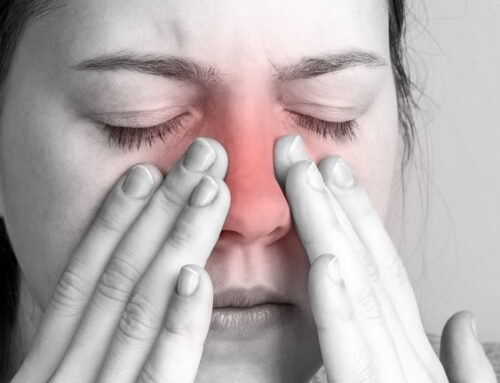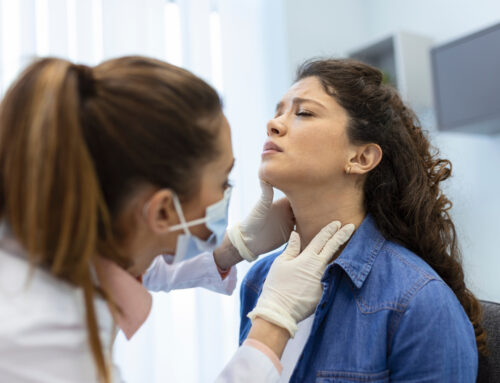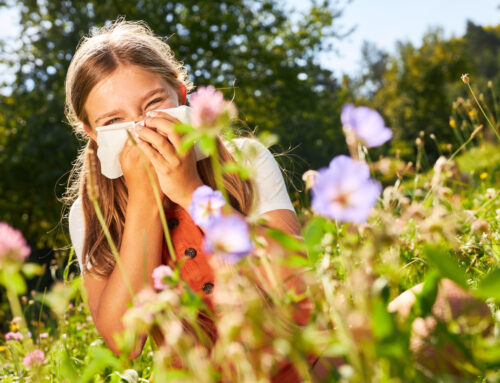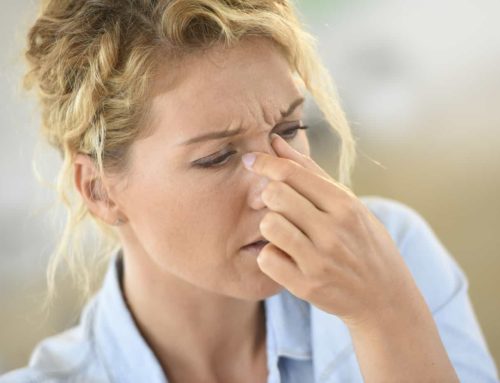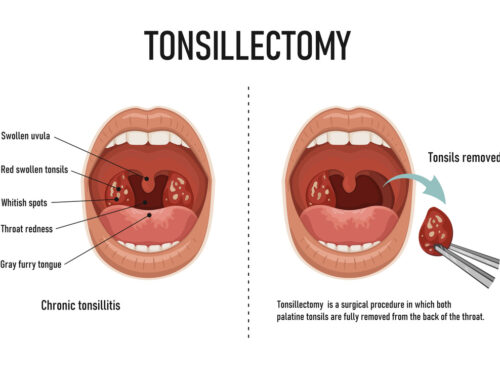The nose plays a critical role in the body’s overall health. Aside from it being the centre of the sense of smell, it’s an important filter that protects the airways and lungs. Sinus and nose problems quickly become systemic problems if not cared for properly. Here, we discuss some of the most common disorders, in order to help you determine the type of care you need.
During a pandemic like the one we are undergoing now, learning about sinus, nose and respiratory illnesses is very important. However, it is also important to seek professional attention from the moment in which symptoms appear, as they can be masking a more serious issue. You must avoid self-diagnosing and self-medicating, and should contact your GP for a proper diagnosis should symptoms persist. Depending on the severity of your symptoms, you may need to consult with a specialist or ENT.
Sinusitis
This is the most common nose condition and can be temporary or chronic. Sinusitis typically presents as nasal obstruction, which makes it difficult to breathe through the nose. It’s also accompanied by pressure on the face, a decreased sense of smell, and nasal discharge. Sinusitis is a symptom of other conditions such as allergies, asthma or infections.
Nasal and sinus polyps
Polyps are the result of swelling in the lining of the sinuses and can block the airways, creating difficulties breathing. They are generally part of a more complicated inflammatory process.
Deviated septum
The septum is a section of cartilage that divides the nostrils. Sometimes, as a result of trauma, the septum deviates and may cause trouble breathing normally, as one of the nasal passages becomes bigger than the other. Generally, a deviated septum will not cause significant problems but, in severe cases, the patient may experience headaches, frequent nosebleeds, sleep apnea, snoring, and postnasal drips. In these scenarios, the deviated septum must be corrected with surgery.
Smell and taste disorders
There are many conditions that may result in smell and taste disorders, such as polyps, allergies, neurological disorders, respiratory infections, trauma and tumours.
Allergies
There’s a large part of the world’s population that suffers from allergies. Watery eyes, stuffy nose and difficulty breathing are some of the most common allergy symptoms. To treat allergies, it is important to determine what triggers them. Most allergies manifest in the form of rhinitis, also known as allergic rhinitis. Specialists can perform a series of tests in order to pinpoint where the problem originates. They can also recommend medication to alleviate your symptoms.
Nosebleeds
Nosebleeds happen when a blood vessel in the nose is damaged. They can be caused by trauma, or even by a very dry environment. Treating nosebleeds is simple, however, if they don’t stop quickly, cauterisation of the vessel may be required. Frequent nosebleeds that occur without apparent cause may be a symptom of other illnesses, in which case, it is important to seek medical attention.
Infections
Viral or bacterial infections may produce sinus and/or nose symptoms before spreading to your respiratory tract. Infections are easily treated when diagnosed early, which is why it is important to seek medical care from the moment in which the first symptoms appear. These may include headaches, facial pain and changes in your sense of smell and taste. As we have currently seen with COVID, these symptoms indicate other important health issues and must be treated fast.
An ENT professional is the best suited to diagnose and treat nose and sinus problems. If you want to learn more about proper care for your nose and sinus or have frequent nasal problems, you can find more information in our blog, or book an appointment with one of our highly skilled and experienced professionals. At Harley 150 street clinic, we specialise in ear, nose and throat problems, and can offer you the help that you need.


